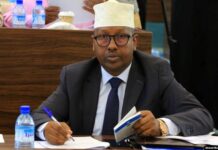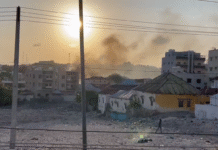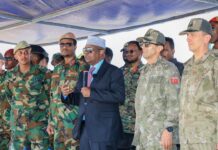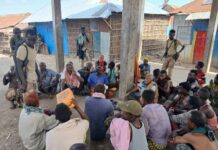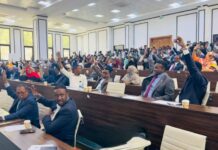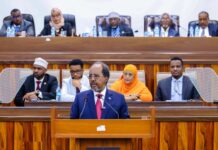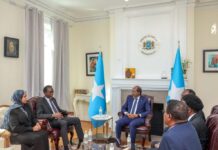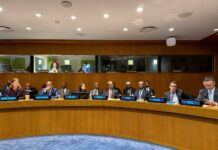2017 has turned out to be another anus horribilis for journalists throughout Somalia. The National Union of Somali Journalists (NUSOJ) recorded during the year four journalists killed, 12 wounded, while 22 journalists were arrested and 8 beaten up, or threatened with death or imprisonment.
The last four months of the year were particularly bloody, considering that no journalist was killed during the first eight months. Three of the four killed journalists died in bomb blasts planned to take away innocent lives, and the country’s capital Mogadishu once again emerged as a deadly city for journalists.
“Throughout 2017, the enemies of media freedom have redoubled their efforts in their quest to eliminate, imprison or silence journalists. And we have no doubt about how the clampdown of media freedom is now becoming more sophisticated with repressive legislations and undemocratic policies being propelled while dividing the media community and undermining journalists’ solidarity actions,” said Omar Faruk Osman, NUSOJ Secretary General.
Journalists continued to face arrests and illegal detentions whereas some were beaten up and others openly threatened with extrajudicial punishments in most major cities such as Kismayo, Beledweyne, Garowe, Hargeisa Baidoa and Las Anod. Somaliland authorities have emerged as the sole authority that actively punish journalists by using the penal code to criminalise what they speculate to be “false news” and “defamation.” In Hargeisa, NUSOJ investigated numerous cases of judicial harassment of journalists.
Two news media organisations were shut-down in 2017 while six news websites were blocked, thus restraining online freedom of expression.
Impunity remains widespread as senior government officials brazenly threaten or instigate attacks against journalists, knowing full well that they will not be held accountable. NUSOJ, however, welcomed the arrest by Somali security forces of four persons suspected of the latest killing of journalist Mohamed Ibrahim Mohamed Gabow, and called for justice to be delivered through due process.
2017 has also been election year, which led to a change in the leadership of the federal government. In the run-up to these elections, candidates used massive bribes to buy media support, which led to the flagrant abandonment of basic tenets of ethical journalism, the erosion of professionalism and biased reporting.
More worrying is that even after the elections, the bribing of Mogadishu-based media houses – with the exception of two – were reported to continue with monthly inducements allegedly reaching up to US$3000 to secure “positive reporting”, as media owners/managers have been doing deals with politicians to carry paid-for material disguised as “honest news” and betraying ethical principles of journalism.
In its relentless campaign to control the media and emasculate their freedom, the Ministry of Information of the Federal Government pursued its plans to enact a draconian media law. The Ministry presented an amended bill to the federal parliament which retained several oppressive articles still severely in breach of the provisional constitution of Somalia and international standards of freedom of expression.
NUSOJ applauded those federal parliamentarians who stood up to critically challenge the revised bill at its first reading and pointed out its consequences on media freedom and professional journalism.
NUSOJ predicts that 2018 will see a more intense fight by journalists to defend their rights, media freedom and freedom of expression and anticipate numerous campaigns to defend their constitutional rights.
“More than ever, our independent and militant union, NUSOJ, entered 2018 more determined to continue to be the defender of journalists and journalism, challenge those who oppress them or believe they have no rights, and champion free expression at every opportunity” declared Osman.
Throughout the year, NUSOJ will be rolling out a national program to train journalists across the country in order to enhance their competence, empower them to stand up for their rights and build professional media that is of service to the public interest.
Source:- NUSOJ

